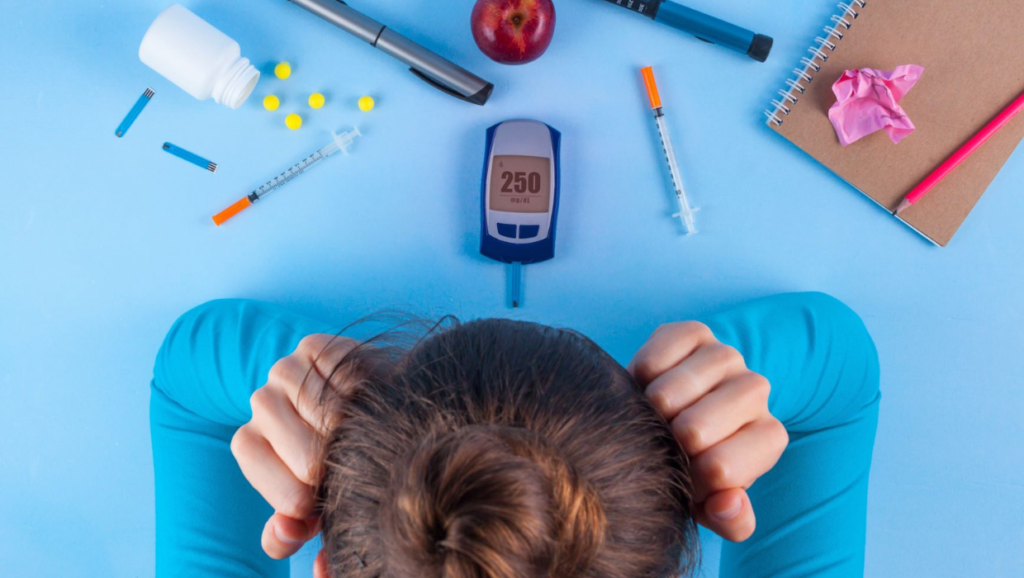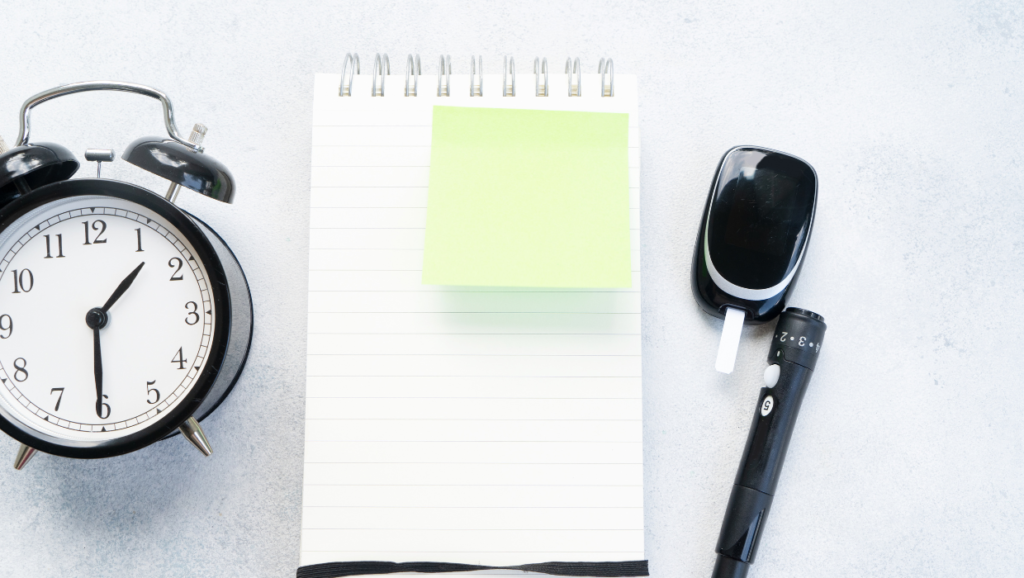Diabetes and Depression
Research shows that diabetes and depression are associated with each other. People with diabetes are doubly exposed to the risk of depression. More studies are needed to identify the direct links, but one of the reasons could be the sudden rise and fall of blood glucose levels. When the blood glucose levels are too high or too low, it may lead to mood swings. Constant low-life state and unchecked mental health might eventually lead to depression.
Similarly, depression can also lead to diabetes. The signs of depression and other mental problems present at the time of diabetes can worsen the situation of patients and can weaken their diabetes management. But the good thing is that there are ways to cope with both of these problems effectively.

How can diabetes affect mental health?
Uncontrolled diabetes affects not only vital organs such as the heart, kidney, and eyes but it can also take a toll on mental health. Once diagnosed with diabetes, it can bring many changes in a person’s lifestyle, such as adapting to a stringent diet. Some of these changes may be adopted easily, but some might take a while to get used to.
The diagnosis is also hard on our relationships with our loved ones, further enhancing stress. Regular blood sugar tests, doctor appointments, and always staying cautious and worrying can be physically tiring and emotionally distressing. These changes put together might overwhelm a person with emotions that can cause diabetes distress. So, the most important thing is awareness of the symptoms of stress due to diabetes. They can be managed with patience and maintaining a healthy lifestyle.
What is Diabetes Distress
It is a mental state where a person constantly feels sad, worried, or anxious due to the pressure of managing diabetes day in and day out. Awareness of the signs of diabetes distress helps to come out of it and find necessary solutions to avoid it in the future.
Signs of Diabetes Distress
- Feeling angry and constantly being in a low life state due to the disease.
- Worrying about the disease getting worse but losing the will to make healthy choices.
- Making wrong food choices.
- Avoid going to the doctor or tracking blood sugar levels.
- Feeling lonely and isolated from others.
Diabetes distress is not depression. People may feel frustrated with their disease for a while and recover quickly. Although if not taken proper care of the mental health, prolonged diabetes distress can lead to depression.
The Relationship between Diabetes and Depression.
Studies show that diabetes is a mood disorder. It develops certain emotions in the mind that can lead to stress, anxiety, and depression. Even controlling diabetes can lead to stress if the emotional well-being is not checked regularly.
Diabetes directly impacts blood sugar levels. When these blood sugar levels rise or fall abruptly, it may lead to severe mood swings. If not taken proper care, it may even lead to depression. So, the most important thing is to be regular with the diabetic management plan to avoid the sudden rise and fall of the blood sugar levels.
Increased awareness about how blood sugar levels affect mental health can also help recognise and solve problems. Let us see how high and low sugar levels impact mental health:
Low sugar level symptoms:
- Weakness and tiredness
- Increased hunger
- Lightheadedness and dizziness
- Irritation
- Feeling confused or nervous
- Trembling
High sugar level Symptoms:
- A mix of emotions (sadness and anger)
- Increased thirst and hunger
- Foggy state of mind
- Exhaustion
It is crucial to keep track of blood sugar levels to avoid such symptoms. If a person is in a healthy state, it will also ensure their mental well-being.
How To Cope With diabetes and depression together?
Managing these two conditions together might seem difficult. But the most effective way of dealing with diabetes and depression is to regulate one problem to resolve the other. Once people are diagnosed with diabetes, they need to keep a timely check on their emotional and mental well-being. Otherwise, it can expose them to severe mental risks.
Diabetes can easily get a person into a low-life state, so making a foolproof plan from the very beginning is crucial to overcoming problems.
What can be done?
Follow the diabetes treatment plan.
Follow the treatment plan from day one. Doctors assign a diabetes treatment plan that includes when to take medicines and test blood sugar levels. Developing a mindset of never missing out on anything from the plan can help maintain physical and mental well-being. Phones can be used to remind when to take medicines and test blood sugar levels.

Visit the doctor for regular appointment.
Diabetes may make a person feel tired soon. The routine of visiting doctors for appointments might get frustrating. But missing doctor’s appointments can worsen the situation. Doctors can help patients to control their diabetes effectively.

Seek Therapy
People who seek therapy to treat their depression have a high chance of coming out of it soon. It is advised to seek psychotherapy to find effective solutions to fight depression. The therapists recommend cognitive-behavioural therapy, family therapy, and dialectical behavioural therapy to overcome depression. Talking with experts about the problems of diabetes and how it affects lifestyle can help the patient feel better.

Medication
Taking medicines regularly helps to fight both diabetes and depression. Many antidepressants sometimes help in regulating diabetes as well. Including yoga and exercises helps in reducing stress and managing emotional well-being.

Takeaway
Diabetes can be life-altering, and it is important to stay aware of the symptoms of emotional and physical distress and take necessary precautions to remain physically and mentally healthy. It can lead to many positive changes in your life and avoid stressful conditions. The most important thing is to check your blood sugar levels regularly, seek proper guidance from doctors and always take your medicines on time.
Now you can get your medicines right at your doorstep without getting out in the sun! Download the Diahome app and get in touch with doctors and diet experts to make a personalised treatment plan, get diabetic care, and many more benefits at your home.
Authors:
Mrs.Sripriya Ravi, M.Sc, Senior Dietitian
Mrs.Vinodhini Gopi, M.Sc, Diabetes Educator